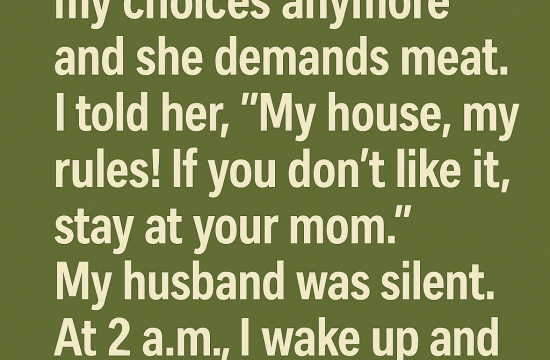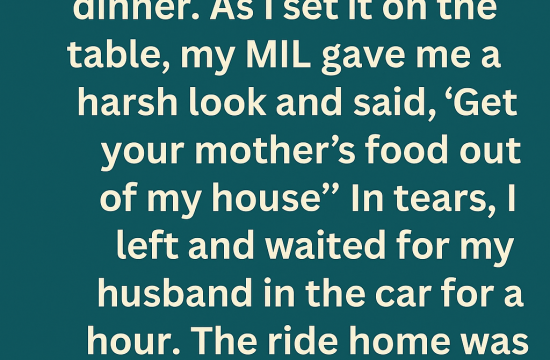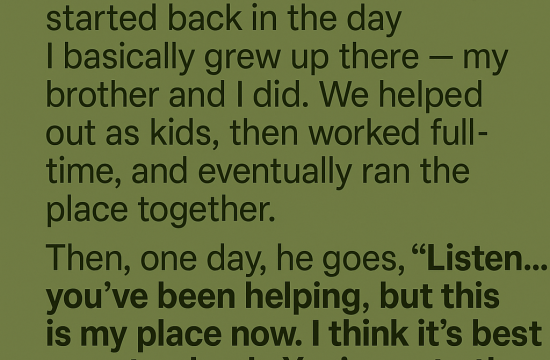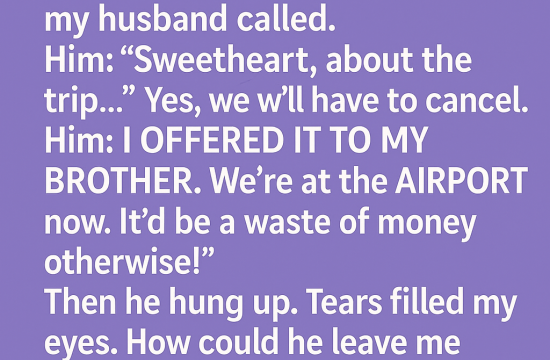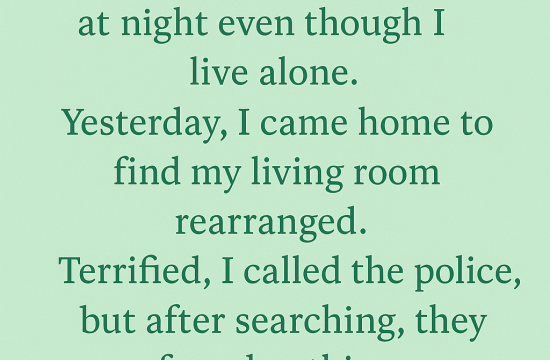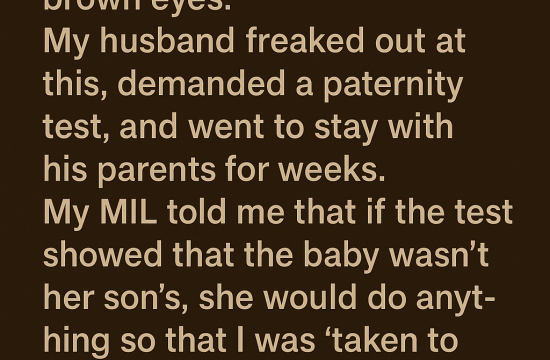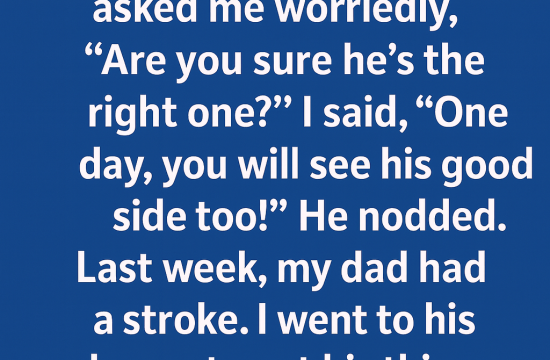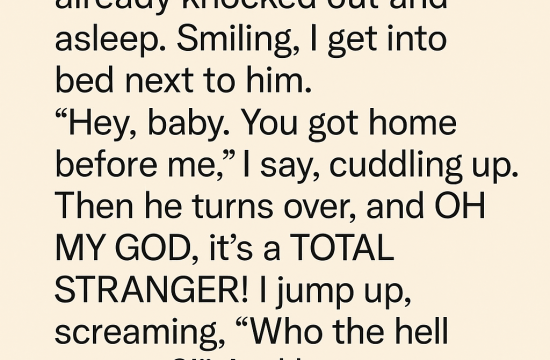My dad was a famous lawyer, and he taught me to value hard work, integrity, and self-respect. He never liked my husband Bradd and kept his distance. After my dad passed away, Bradd wasn’t supportive—instead, he quickly asked about the money. I told him I wasn’t in the will. A month later, he filed for divorce.
What he didn’t know was that the story was far from over.
Bradd and I had been married for six years. In that time, I saw both his charm and his chill. He was ambitious, yes—but it came with sharp elbows. My dad, sharp as ever, saw right through it. He never said much, but I knew he didn’t trust Bradd.
When Dad died, I was shattered. Over the years, we’d grown closer—while Bradd kept things surface-level. The funeral was quiet, just a few friends and colleagues from the firm. Bradd barely spoke. That night, before bed, he asked me the one question that broke everything:
“So, how much did he leave you?”
Not grief. Not sorrow. Just disappointment. That question cut deeper than anything.
“I wasn’t in the will,” I said.
He didn’t flinch. Just kissed me on the forehead and rolled over like it was nothing.
A month later, I got served divorce papers. No conversation. Just papers. It still stung. We’d shared a life, holidays, small routines. But the moment he thought I had nothing? He was gone.
What Bradd didn’t know was that my dad had left more than money—he left a plan.
Three days after the papers arrived, I got a call from Marianne, my dad’s longtime law partner. Elegant, intimidating, and loyal to the bone.
“Your father left instructions,” she said. “Come to the office. Alone.”
She handed me a plain envelope. Inside was a letter in his unmistakable cursive:
“Sweetheart,
If you’re reading this, then Bradd showed his true colors—just as I feared. I know this hurts. But I’ve prepared something to help you rebuild.
I couldn’t put it in the will—not with him around. You’ll find the details in the safe deposit box. You remember the place.”
My hands trembled. The bank. I remembered. He took me there when I was 19, after I opened my first account. “One day, this place might matter,” he said.
That afternoon, I went.
The clerk guided me to a private room. Inside the safe deposit box was a small wooden box, a folder of documents, and a USB drive.
Inside the wooden box: a locket with a photo of my mom—gone since I was little—and me as a baby. Beneath it, a note:
“Keep this close. You’ll always be my little girl.”
Then came the folder.
Three properties. All in a trust under my initials. A beach house in Maine. A mountain cabin in Colorado. And a fully paid-off, three-bedroom apartment in the heart of the city.
All hidden from the estate. All safe from Bradd. Dad had planned everything.
I laughed through tears. He knew. He knew. And then I plugged in the USB.
It held voice memos—his voice. Talking about me. Life. Love. His suspicions about Bradd. His hopes that I’d find someone worthy. His warmth filled the room, and I sobbed for an hour.
But then… I stood up.
I didn’t contest the divorce. Let Bradd take the car, the furniture, even the TV I bought. He thought he was walking away the winner. Let him believe it.
I moved into the apartment. It needed fixing, but it had character. I adopted a scruffy rescue dog named Benny. He snored like an old man and followed me everywhere.
I quit my job. With my newfound financial freedom, I started a consultancy for women going through divorces. It was small at first, but within a year—I had a waitlist. Turns out, a lot of women had their own Bradds—and they were finally ready to walk away.
Then, a year later… he showed up.
Bradd.
At my office.
He looked smaller. Paler. Like life had stopped coddling him.
“I didn’t know where else to go,” he said.
“I lost my job. The woman I was seeing dumped me. Said I was obsessed with money. The car got repossessed…”
He looked at me, desperate. “I made a mistake.”
I didn’t laugh. I looked at him and said calmly:
“You didn’t make a mistake, Bradd. You made a choice.”
He stared at me in silence.
“I’m not angry,” I said. “In fact, thank you. You walking away gave me the life I should’ve had all along.”
He nodded. And left. That was the last time I saw him.
A few months later, I met someone. His name was Malik. A soft-spoken carpenter with kind eyes. We met when I hired him to help fix up the beach house. We talked about life, loss, cartoons, and bad coffee. There were no games. No pretending.
He didn’t care about my money. In fact, he didn’t even know about it for a long time. We just… fit.
One day, walking Benny through the park, he turned to me and said:
“You ever think your past happened just so you’d end up exactly where you are now?”
I smiled. “Every day.”
That fall, I invited some of the women I’d helped to the cabin. We cooked, danced badly, laughed too loud. It wasn’t therapy. It was healing.
Later that night, wrapped in a blanket on the porch, I whispered, “Thank you, Dad.” Because he hadn’t just left me assets. He left me strength. A path. A second chance.
The biggest thing he gave me wasn’t a house or a trust. It was a reminder:
Real love doesn’t need to be bought. Real love stays.
Bradd chased what he thought was treasure—and lost the real thing.
I lost what I thought was love—and found peace, purpose, and a dog who snores like a chainsaw.
If someone ever leaves you when you’re down, let them. Life might just be clearing space for something better.
And sometimes… the ones who walk away with “everything”—walk away with nothing.




